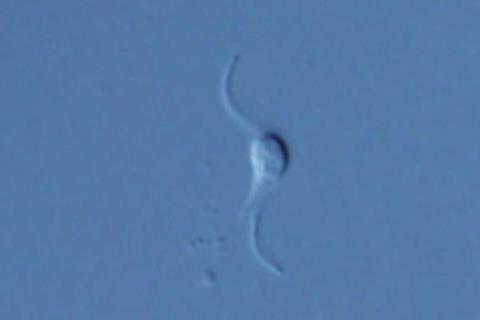Researchers at University of Tsukuba have identified a previously unknown species of unicellular organism in seawater collected near Hachijojima Island. The newly discovered species, named Viscidocauda repens, belongs to the protist group Endomyxa and is notable for possessing a persistent flagellum—marking the first recorded instance of such a flagellate within this group.

The group comprises a diverse range of protists, including intracellular parasites that infect animals and plants, as well as free-living amoebae that do not rely on a host. Until now, no member of this group was known to exhibit a continuously present flagellum.
READ MORE: Symbiotic bacteria ride along with marine cells in ocean’s upper layer
READ MORE: Researchers shed light on the mechanisms of bacterial flagellar motors
In this study, published in Protist, scientists successfully established a culture of the flagellated protist from seawater samples. Detailed microscopic analysis revealed that the organism displays a unique morphology and internal cellular structure distinct from any previously identified flagellates. DNA sequence comparisons confirmed that the protist belongs to Endomyxa. Based on these findings, the researchers described it as a new genus and species: Viscidocauda repens.
This discovery challenges the current understanding that Endomyxa lack flagella or possess them only during certain life stages. The presence of a persistent flagellum in V. repens suggests that the common ancestor of this group may have been flagellated. These findings offer valuable insights into the evolutionary history and biological diversity of Endomyxa.







No comments yet